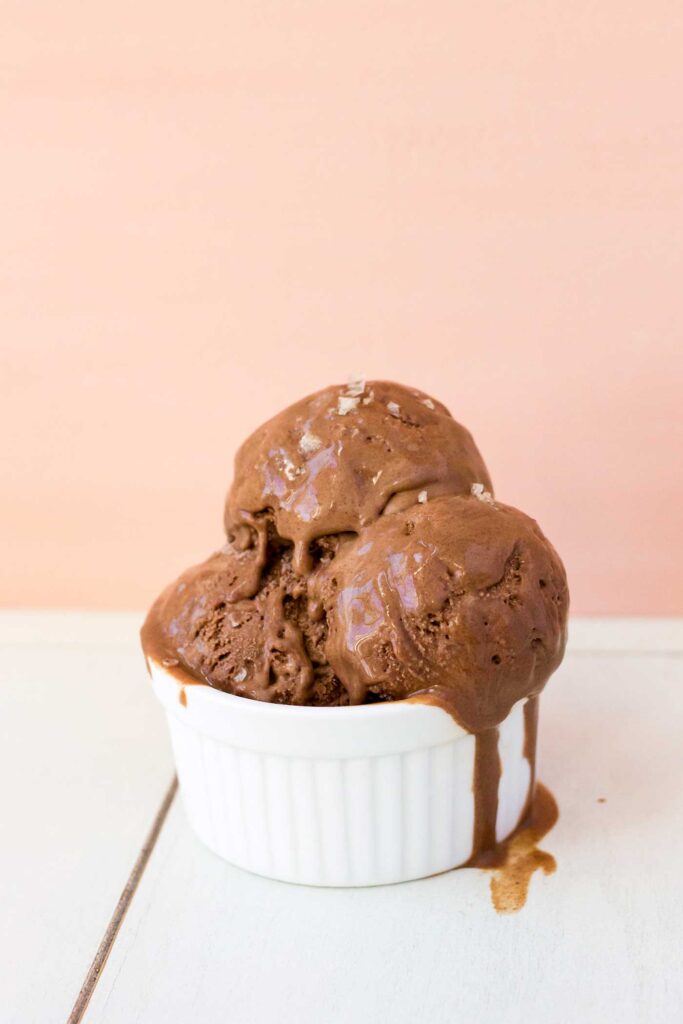Soy sauce has become a staple ingredient in many dishes, so more people are making sure to have it at home. This is great because adding a little soy sauce to your food can elevate it to the next level.
Soy sauce is a must-have in every household’s kitchen. It can be used to flavor a meal or as a condiment.
But, keeping soy sauce around may cause you to wonder if it ever gets bad. Especially when you visit an Asian restaurant and see the soy sauce containers on the table daily.
A whole bottle of soy sauce can take a while to consume because you only need a small amount each time. To tell when it’s safe to eat, you should know the shelf life and the spoilage symptoms.
Does Soy Sauce Go Bad?
Yes. But soy sauce is durable due to its long fermentation and high salt content. This sauce will last longer if stored in a dry, cool place away from direct sunlight. To prevent moisture from getting into the container, you should seal the lid after each use.
You can keep your sauce fresher for longer by refrigerating it or freezing it in an airtight package. This will preserve its flavor and allow you to have fresh-tasting sauce whenever it is needed.



Don’t let this one slip away — pin it now and thank yourself later!
Don’t let this one slip away — pin it now and thank yourself later!

How long does soy sauce last?
Although every soy sauce bottle has an expiration date, it will likely last much longer than that date. Because soy sauce is high in sodium, it helps to preserve the sauce and makes bacteria less likely to grow.
Unopened soy sauce bottles will last approximately 3 years after their expiration date. However, if stored properly, they can still be useful. A sealed bottle of soy sauce will last between 1 and 2 years once it has been opened.
But, no matter how you put it, soya sauce can last long. Your soy sauce should be safe even if stored for over two or three years. Old soy sauce can lose its freshness and flavor, so people often throw it away.
How can you tell if soy sauce is bad?
Another fact about soy sauce is that it won’t spoil unless it has water added to it. You can store it in an airtight container. It would be much better to check the smell and taste of your soy sauce regularly so you have time to make any necessary changes. These signs will help you distinguish a good soy sauce bottle from a bad one.
-
Smell
Soy sauce tastes similar to beer and freshly baked bread. It has a strong aroma, but it is manageable.
If the soy sauce smells strange, it is time to say goodbye. It may just be the smell, not the taste, that is bad. It is possible to spoil your sushi.
-
Taste
Soy sauce generally has a bitter taste followed by saltiness or sweetness. If you detect a bitter taste, your soy sauce is likely contaminated. You should throw it away.
-
Mold
Your soy sauce bottle could become contaminated if it is not stored correctly. External factors could cause it.
If the seal is broken or the contents are not clear, it’s best to throw it out as soon as you can.
How to Store Soy Sauce?
Knowing how to preserve soy sauce is the first step in extending its shelf life. After examining the warning signs of deterioration, let’s examine how long soy sauce can last after being opened.
Placing unopened soy sauce bottles on windowsills is not a good idea. Direct sunlight can cause skin cancer. They should be stored in a cool, dry area, such as a pantry or kitchen cabinet. If you need it to last a while, it can be kept in a dark place like a pantry. If you plan to keep it for longer, however, it is best to store it in the fridge.
After it has been opened, you can store the soy sauce at room temperature for six months. It can also be kept refrigerated for a very long time. You can keep it in a refrigerator for up to three years.
The most obvious signs that soy sauce is bad are mold and particles floating on the sauce.

Do Soy Sauces Need To Be Refrigerated?
Soy sauce is a fermented condiment made from soybeans and wheat. Soy sauce is an important ingredient in Asian cuisines but can also be used in Western cuisines. Soy sauce is not required to be refrigerated because it is a fermented food.
Soy sauce is long-lasting and doesn’t spoil easily. If it isn’t stored correctly, soy sauce can get moldy. Soy sauce that has gone to mold will have a slimy texture and a foul-smelling smell.
Throw away any moldy soy sauce. Soy sauce slowly darkens when stored at room temperature. This is normal and will not affect the taste of the sauce.
You can keep the Soy sauce in a dark, cool place for up to 2 years. Although it is not required, it can extend the shelf life of soy sauce. You should not refrigerate soy sauce. Refrigerated soy sauce will taste slightly different than one stored at room temperature.
Can you freeze soy sauce?
The answer is no. The soy sauce doesn’t have to be frozen. This overview of all fermented foods like miso, fish sauce, and others. This product can be kept open at room temperature for a while without going bad.
These microorganisms can give fermented food items a unique flavor and help preserve them. Soy sauce is also made from fermented pastes of soybeans, saltwater, brine, vinegar, and mold.
This salty brown liquid takes time to brew at room temperature. It doesn’t need to be refrigerated or frozen. It won’t go bad if it is kept at room temperature. Although soy sauce can lose some flavor if kept at room temperature for a while, it will not go bad.
You can also keep a soy sauce container sealed for up to three years if it is not opened. You can also keep an open bottle in the refrigerator for up to one year.
Health Benefits of Soy Sauce
It is well-known that natural remedies in Asian cultures are preferred over modern medicine. Many foods are part of their natural medicines. Because soy sauce is an old Asian sauce, it is healing in certain areas.
- Soy sauce can help lower blood pressure if you have high blood pressure. Ironically, soy sauce can be quite salty. Western logic says otherwise.
- Soy sauce helps with digestion.
- It boosts your immune system.
- This savory sauce can be used on food to get your iron and magnesium.
- Soy sauce also contains vitamins B3 and B2. Your body will fight high cholesterol and pain in the arthritic joints with B3. Because it aids in the breakdown of fats, carbs, and proteins, B2 is essential to a healthy diet.
How To Use Expired Soy Sauce?
Soy sauce is an essential ingredient in Chinese cuisine. Soy sauce is a flavoring agent, a dipping sauce and a marinade. You must consume Soy sauce within one year of its creation. However, you can use it safely after that time.
Expired soy sauce won’t taste as good as when made. The sauce will taste more muted and thicker. It will still be safe to eat. The expiration date should be considered a guideline, not a requirement. You can always use an expired bottle if you are in a pinch. It may not taste as good, but it is still delicious.
Best by Date VS Use by Date
You should always check the expiration date when you purchase anything. Soy sauce is just like condiments and has an expiration date.
Soy sauce is similar to coffee, cinnamon, and hot peppers. However, it can lose its flavor. This is the time that the flavor will reach its peak. It will still be edible if you keep it open past the ‘best before date. However, the storage conditions can affect the quality of the product.
There are two types of soy sauce. Fermented soy sauce is more flavorful than hydrolysis soy sauce, but it will lose its flavor faster.



Don’t let this one slip away — pin it now and thank yourself later!
Don’t let this one slip away — pin it now and thank yourself later!
Frequently Asked Questions
Is soy sauce bad for your thyroid?
Soy sauce, a fermented variety, contains Goitrogens. These are isoflavones that interfere with the production of thyroid hormones.
Can soy sauce go bad if not refrigerated?
Soy sauce, like fish sauce, must be refrigerated only if it is kept for longer than one year.
Can expired soy sauce be used?
Although soy sauce may experience color and flavor changes, it is safe to eat. As a result of oxidation, soy sauce will develop a darker color and a stronger flavor.
What is an alternative to soy sauce?
Best Soy Sauce Substitutes To Use Instead
- Tamari.
- Worcestershire sauce.
- Miso.
- Maggi seasoning.
- Salt.
- Coconut aminos
- Liquid amino.
- Dried shiitake mushrooms.
Can you freeze soy sauce?
Soy sauce cannot be frozen, even if you want it. Soy sauce is a liquid-based product but contains a lot of salt. The salt prevents ice formation, so the soy sauce remains in liquid form for as long as possible.




